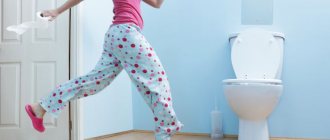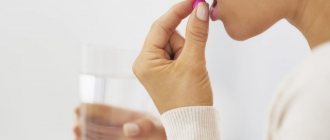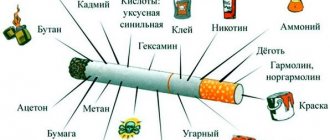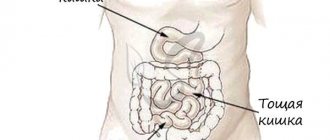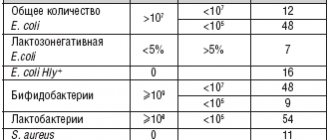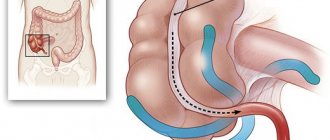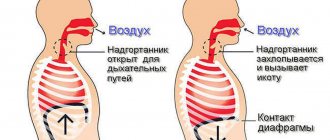The intestine is one of the main human organs. It performs vital functions: digests food, absorbs water and nutrients, forms and removes feces, provides protection against infectious agents and food allergens. Any malfunctions in its work affect a person’s well-being and negatively affect the general condition. An important indicator of organ health is regular cleansing.
The norm for bowel movements for adults is 1-2 times daily or every other day. These are averages. Some people feel great and do not experience digestive problems with a bowel movement frequency of once every three days. Others experience discomfort when stool is retained for only a few hours. Each organism is unique, so it is important to listen to yourself and not ignore signs of failure.
How to normalize stool
A lack of dietary fiber and water in the diet, a sedentary lifestyle, excessive caffeine consumption, and stress are the most common causes of constipation3.
By normalizing your diet and lifestyle, you can ensure that daily morning bowel movements become a common occurrence. How to achieve this? It's not that complicated.
- First of all, you need to stick to your daily routine. Try to get out of bed and go to bed at the same time.
- Monitor your diet, determine a meal schedule and try to stick to it. The last meal should be 2 hours before bedtime, and at night you can drink a glass of kefir. Naturally, late-night snacking is out of the question.
- Review your diet, exclude smoked foods, spicy, fried foods, as well as foods that weaken intestinal motility. Such products are: canned meat and fish, hard-boiled eggs, baked goods, pasta, millet, semolina and rice porridges, potatoes, red wine, chocolates, pears, green (unripe) bananas, as well as dogwoods, lingonberries, pomegranates and pureed soups. If you can’t completely remove these foods from the menu, at least limit their intake. You should reduce your consumption of coffee and strong tea, and, of course, you should avoid fast food.
- A person’s daily diet should contain foods rich in dietary fiber: cabbage (including sauerkraut), carrots, beets, radishes, turnips, cucumbers, tomatoes, legumes, seaweed.
- Pay attention to vegetables and fruits that have a mild laxative effect: plums, apricots, sour apples, ripe persimmons, herbs, watermelons, melons.
- Add bran to your regular meals, buy bread with bran and whole grains. Every day you need to eat salads with raw vegetables, seasoned with vegetable oil, which also has laxative properties.
- It is important to reduce the amount of food consumed at one time. It is better to eat often, but in small portions - 5-6 times a day.
- Don't forget to drink plenty of water. An adult needs about 2 liters of water per day (assuming his kidneys are functioning normally).
- Of course, you need to play sports.
But, despite the apparent simplicity of the recommendations, it is not always possible to fully comply with them. The high pace of life dictates its own conditions: sometimes we can only dream of a full meal in a quiet environment or a subscription to the pool. Here are some simple tips that will help you gradually make healthy habits a part of your life.
- In the hustle and bustle of the day, we may forget to follow all these tips. Therefore, plan your menu for the week in advance and buy products in accordance with it.
- No opportunity to eat well at work? Take nuts, dried fruits, and pumpkin seeds with you for a snack. These are healthy and tasty products that perfectly satisfy hunger.
- Forgetting to drink water? Set a reminder on your phone to drink a glass of water every hour.
- Don't have time to go to the gym? Try to ditch the car where possible, ride a bike, skip the elevator, get off one stop early and walk that part of the journey, and start your day with morning exercise.
If proper nutrition and physical activity do not help cope with the problem of constipation, you can try taking a laxative.
Restoring defecation correctly
According to statistics, bowel movements are disrupted in 30-50% of people. Deviation from the norm leads to constipation and deterioration of well-being. To restore normal bowel function and speed up the excretion of feces, experts advise using pharmaceutical drugs.
Laxatives for older people, pregnant and lactating women should be chosen especially carefully. A high-quality product does not contain senna and other dangerous ingredients, does not cause side effects and is suitable for long-term use. Fitomucil norm meets these criteria.
The biocomplex with the shell of plantain seeds and the pulp of plum fruits is effective, but gentle. The active substances in the composition stimulate peristalsis and promote easy bowel movements. If you follow the rules of administration, the laxative relieves constipation within 12-48 hours.
How to take the product correctly, read the attached instructions. Before use, consult a gastroenterologist.
Types of constipation
It is very important to classify acute and chronic constipation. In the first case, we are talking about sudden constipation - against the background of general health or exacerbation/acquisition of other diseases. Chronic constipation is diagnosed when symptoms persist for 3–6 months. The main criteria for determining constipation include the following:
- the need to strain at least in 25% of cases of defecation;
- dense, fragmented, dry feces;
- the need for manual assistance during defecation, etc.
Based on their origin, constipation is divided into many types.
Psychogenic
This type of constipation is quite easy to identify for the person himself. It occurs against the background of mental disorders and diseases: anorexia nervosa, depression, neuroses and phobias, etc. It is worth noting that constipation can also be called psychogenic when a person consciously restrains the urge to defecate, for example, avoids going to the toilet at work. False shame can lead to serious problems.
Neurogenic
This type of constipation is caused by dysregulation of intestinal motility. The condition can accompany tumors of the spinal cord and brain, previous injuries and strokes, Alzheimer's disease, etc.
Dyskinetic
Associated with intestinal dyskinesia. Muscle tone disorders can be independent and occur as a result of inflammatory diseases, pathologies of the genitourinary system, etc.
Spastic
It is a consequence of spasms of intestinal smooth muscles. It can develop against the background of stress, emotional stress and other factors.
Nutritional
This type of constipation is associated with an unbalanced diet, consumption of constipating foods, and poor drinking. Usually we are talking about a diet that is dominated by sweets, confectionery, bread, and pasta. Lack of dietary fiber leads to functional disorders. Normalizing intestinal function in this case is quite a simple matter: just review your diet and drink enough liquid.
Hypodynamic
Difficulties in defecation can occur in people who are forced to remain in bed, have a sedentary job, or lead a sedentary lifestyle. Older people are more likely to suffer from constipation.
Proctogenic
This type of constipation is associated with diseases of the rectum and anal area. The most common obstacles to normal bowel movements are anal fissures, fistulas, hemorrhoids, inflammatory diseases - proctitis, paraproctitis. In this case, constipation may be accompanied by mucous, purulent, and bloody discharge.
Mechanical
Stool retention occurs due to the fact that the movement of feces is hampered by tumors, narrowing of the lumen, and enlargement of nearby organs. This may be due to intestinal polyposis, adhesions, neoplasms and other diseases.
Endocrine
Such constipation is associated with changes in hormone levels as a result of endocrine diseases, menopause, pregnancy, and the postpartum period.
Medication
Constipation can be caused by taking medications. Painkillers, antidepressants, anticonvulsants, hormonal drugs, antibiotics, diuretics and other drugs may have this effect. The condition may resolve after stopping the medications, so you should consult your doctor about a possible treatment alternative.
There are other types of constipation - associated with intoxication, dehydration, systemic diseases, etc. Serious causes of constipation are quite rare. Usually this disorder is functional in nature. Thus, researchers Marinchuk A. T., Bogatyrev V. G. and others in their scientific work claim that “constipation in 80-90% of cases is of a functional nature, the rest is caused by reasons of an organic nature” (Marinchuk, Bogatyrev, Babieva, Kumbathiadis , 2012, p. 53). However, despite this, eliminating only one cause will not be enough. To normalize intestinal function, it is necessary to adjust your lifestyle, nutrition, drinking regimen, and daily routine.
It’s normal and not normal to poop – what’s it like?
Normal bowel movements are soft, easy-to-pass feces, the smell of which does not cause nausea or vomiting, and the process of elimination is easy, not long and does not require much effort.
What's not normal is watery, loose stool that is caused by moving through the intestines too quickly, usually as a result of irritation, such as an infection.
Loose stools, also known as diarrhea or diarrhea, are not always harmless frequent and rapid runs to the toilet. This disorder can lead to nutrient deficiencies because the intestines cannot absorb them due to the rapid passage through the digestive tract.
Small feces that look like hard balls are the norm only for goats and sheep, but not for humans - they also do not mean anything good, and are usually a sign of constipation, partial bowel movement, or incomplete bowel movement. Getting rid of them can be difficult, and in trying to part with them, a person can earn hemorrhoids - painful, enlarged nodules of blood vessels located near the anus - inside or outside.
How many times a day is it normal to go to the toilet?
Scandinavian experts in the field of gastroenterology conducted large-scale studies and published data in the journal Revista Escandinava de Gastroenterología that almost 96% of respondents visit the toilet from 3 times a week to 3 times a day. Thus, we can conclude that everything within this framework is the norm. There is no one specific number of bowel movements that would be the only correct one. But if there are deviations from the pattern, then this is a serious reason to consult a doctor, since there are probably problems with the intestines or stomach.
When should you start worrying and go to the doctor?
Actually, you can start thinking about health problems when, for more than 1-2 weeks, obvious changes or features appear in the behavior of the intestines that were not noticed before, and some symptoms:
- blood in the stool - may indicate bleeding in the rectum;
- thin feces, not much thicker in diameter than a pencil - perhaps it’s all about intestinal cancer;
- sudden weight loss or fever along with diarrhea or constipation;
- black feces - occurs when internal bleeding occurs due to damage to important organs;
- severe abdominal pain;
- vomiting blood or a dark substance that looks like coffee grounds.
The risk of early death in depressed women is 4 times higher! December 5, 20202706 7
Process technique matters
If you have difficulty pushing stool out, you may be positioning yourself incorrectly on the toilet when having a bowel movement.
It has already been proven that the most effective position is not when your body is at an angle of 90 degrees, but the body position in which you create an angle of 45 degrees, with your knees pressed closer to your stomach. This is how our ancestors pooped when toilets were not invented and most people had to squat to walk.
This position creates the most comfortable angle for the exit of feces without much effort on the part of the person. Unfortunately, pooping this way is not an easy task in modern restrooms.
What is human feces?
Feces are the remains of food that the intestines could not digest or absorb, that is, absorb, and use them to create energy, restore old cells and create new ones, and other needs.
Feces mainly consist of water, and, as we all know from our own experience, the amount depends on a large number of factors, such as the amount of fiber eaten or even the spiciness of the food, but on average this figure is about 75%.
The second most important ingredient is bacteria - both living and dead, which account for 25-54% of the dry weight of feces.
The rest is mostly undigested fiber, carbohydrates, protein, fat and dead cells in the walls of the gastrointestinal tract. Well, in rare cases - something inedible that accidentally entered the body with food.
In addition, in the stool there is a small amount of the results of metabolism, or metabolism: for example, the breakdown products of the most numerous component of the blood - red blood cells, and the bile involved in the digestion - stercobilin, which colors the stool in the usual brown color.
Why do people fart? May 10, 202113611 2
Diagnosis of coprostasis
Question
Solution
Which doctor should I contact?
First of all, see a therapist. He can refer the patient further to specialized specialists:
- proctologist;
- gastroenterologist;
- surgeon
What do you pay attention to during the initial examination?
Pallor of the skin and an increase in the size of the abdomen are enough to suggest a diagnosis. Then the doctor performs palpation, identifying:
- bloating;
- the presence of compactions and hard formations along the intestine.
What are the tasks of a proctologist?
If coprostasis is suspected, the therapist refers the patient to a proctologist, who examines the patient in more detail:
- notes anal fissures, hemorrhoids, or gaping;
- pays attention to the structure of feces and blood impurities visible to the naked eye.
Usually, a visual examination and consultation are not enough, so the patient has to undergo a series of instrumental and laboratory tests to confirm the diagnosis.
Instrumental research methods
Possible methods:
- colonoscopy;
- irrigoscopy.
Colonoscopy is considered one of the safest and most informative methods for examining the intestines. This approach allows you to carefully examine the mucous membrane along the entire length of the intestine using an endoscope. The device is carefully inserted into the anus of the patient lying on his side, and an image of the surface of the mucous membrane is displayed on the doctor’s monitor.
Note! Sometimes patients experience discomfort during the procedure, so doctors offer anesthesia. The patient regains consciousness immediately after the end of the manipulation, and after two to three hours after it he can begin his usual activities.
Irrigoscopy is also aimed at studying the intestines, but the principle of the study is different:
- the patient is given rectal contrast agents that are safe for the body - for example, barium sulfide;
- then radiology is performed;
- On the resulting images, the shape of the rectal lumen, its distensibility and the functional state of the intestine as a whole are studied.
Unlike colonoscopy, irrigoscopy is painless and non-traumatic, but it is static and less informative. However, it cannot be avoided if the first examination method is contraindicated for the patient for some reason.
Laboratory research methods
You may also need to undergo laboratory tests:
- make a coprogram (evaluation of physical, chemical and microscopic analysis of stool);
- take a stool test for occult blood (if it is not possible to detect it with the naked eye);
- be tested for the presence of helminth eggs in the feces (a ball of helminths often causes delayed bowel movements);
- take general and biochemical blood tests to determine the condition of the body.
Sometimes a PCR test is prescribed. It is worth considering that there is a small requirement for this analysis: you must refrain from eating for 3 hours before the test itself.
Walk often after meals
If you feel like you're expelling what you've eaten very quickly, it's not because you have a super efficient digestive system. On the contrary, frequent trips to the toilet are a big sign that your digestive tract has not matured. Pooping after eating is a reflex of infants. Some people retain this reflex.
It may not be convenient to be near the toilet immediately after eating, but it is quite normal from a health point of view.
What you poop has nothing to do with what you just ate, so don't worry - your body has time to extract the nutrients it needs from your food.
You only need to worry when your stool is too liquid, does not sink, and has a terrible smell. This may indicate that fats are not being absorbed enough. In this case, you need to contact a gastroenterologist.
What if my chair is less than ideal?
Fortunately, in Ayurveda there is no need to strive for perfection. The point is to gradually cultivate a loving awareness within yourself and consciously change your body to achieve a favorable response from Mother Nature. If you notice undigested remnants of last night's dinner in your stool, it means your digestion and ability to absorb food have not been able to cope with the food you have thrown into your body. It may also mean that the food is not suitable for your type or season. Or perhaps you are unable to fully process your emotions or are experiencing mental stress.
I rarely go out on vacation
Most likely, this sounds familiar to you: you are on vacation with your family, enjoying the sunny days, the beach, the sand, but there is one problem - you haven’t walked much for several days. According to some studies, 40% of people experience constipation while on vacation, although the exact number of people experiencing this problem is uncertain. It is not possible to track.
So, what is the reason for the difficulties? Just a few hours spent on a plane is enough to dry out your intestines. The atmospheric pressure inside the plane is different from the pressure outside, so moisture is gradually sucked out of your body and intestines.
When you're lounging on the beach or sightseeing and drinking less fluid than you would at home, dehydration continues. At the same time, you are likely to consume fried and fatty foods in larger quantities than in everyday life. Add to this the stress of the body in an unfamiliar place, time zone change - you get increased intestinal sensitivity.
How to poop more often and get rid of constipation, read here.
Treating Frequent Urination
If you have an infection and want to pee because of acute cystitis, antibiotics will usually clear it up quickly and effectively.
There are also other medications that relax the bladder, which may be helpful in relieving overactive bladder symptoms and reducing episodes of urinary incontinence. In some cases, you can use injections - injections of gel into the urethra with frequent leakage of urine from a weak bladder. Nerve stimulation or surgery may also be recommended for some conditions. In any case, abnormalities in urination can be treated only after a comprehensive examination and clarification of the diagnosis. assignment_ind
Make an appointment with a gynecologist ☏ +7(495)790-0779
Do you often want to pee after sex? Find out how one injection of hyaluronic acid can help girls get rid of this problem.
assignment_ind
Treatment of cystitis after sex
Why do feces disgust us?
Despite the fact that we ourselves produce all this brown stuff, every normal person has a disgust for the contents of the toilet - and this, by the way, does not just happen. This important mechanism forces a healthy body to stay away from feces, since it can infect us with bacteria, fungi or parasites.
This is exactly what nature intended - in order to reduce the chances of encountering an infection, she instilled in us a hatred of the smell of feces and the need to avoid contact with them.
What’s interesting is that almost all representatives of different cultures react to waste in the same way - we recoil, shudder, and our face is distorted in a grimace of that same disgust.
Simply put, evolution has programmed us to react negatively to feces to protect us from disease, since the bacteria it contains are much more resilient than other bacteria, meaning they are more likely to survive where others die and infect people who touch them.
Why do people poop?
We all do this - we go to the toilet for two extremely important reasons, because from time to time our body needs to get rid of the waste products that the body produces.
Despite the fact that the topic is not considered the most pleasant and it is not customary to discuss it openly, it is in no way possible to do without the process itself, even if you really want to, since it is not only completely natural, but also absolutely necessary for any living creature.
This happens to every person, without any exception: we fart, produce snot, grow boogers, and, of course, poop, and not at all in a rainbow.
This happens approximately 1.2 times every 24 hours, and there is simply no strict concept of the norm - healthy people can do this much more often or less often, without being guided by average values. Our body does not owe anything to anyone - as many times as it wants, it gets rid of the contents of the intestines.
Every day we produce about 128 grams of feces - a vital part of the life cycle of our planet, which becomes fertilizer for some organisms and food for others.
By the way, there is human waste even on the Moon: the first representative of civilization to set foot on it, Neil Armstrong, left as many as 4 bags of this “good” on the satellite of our planet.
As to why exactly people do this, everything is quite clear - we drink and eat, and from the foods and liquids we put in our mouths, the body receives the necessary H2O and nutrients, which it converts into energy, thanks to which our body can move and think. Not a single living creature can assimilate the food it receives 100% - there is always something left over that has to be gotten rid of.
Let's try to figure out what our waste is, what it consists of, and how often it should be left in a place specially designed for this.
